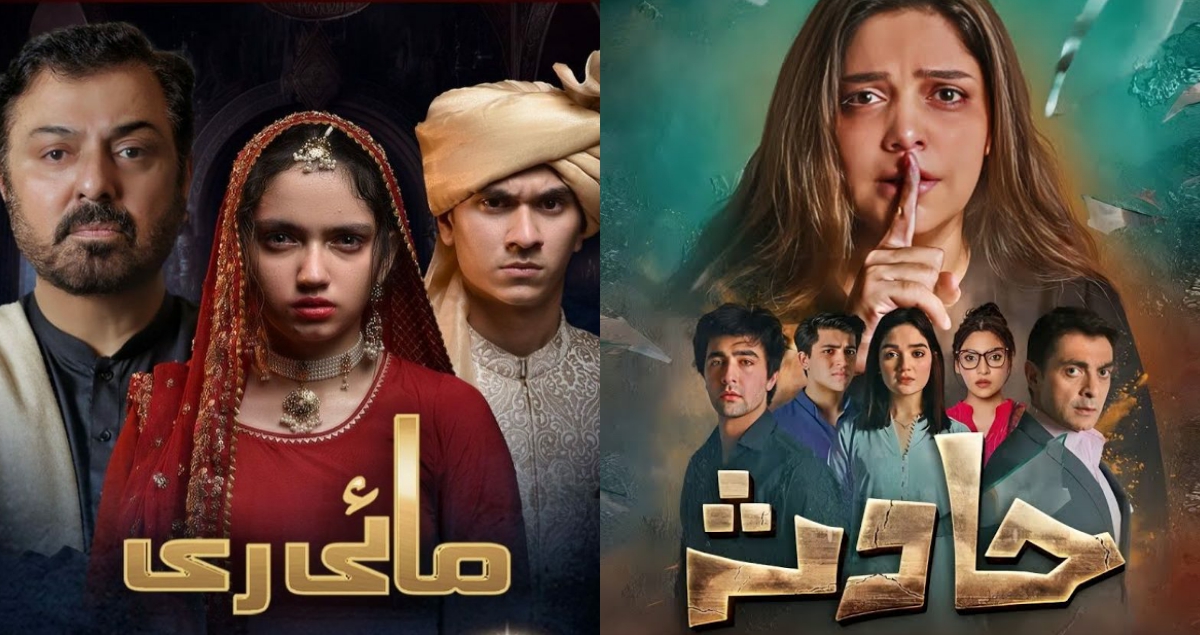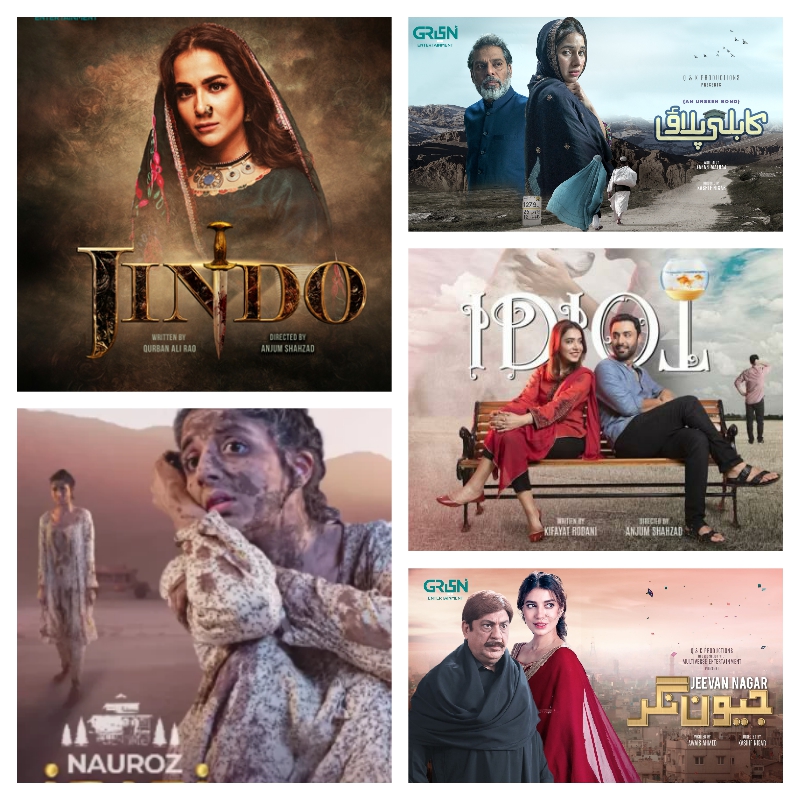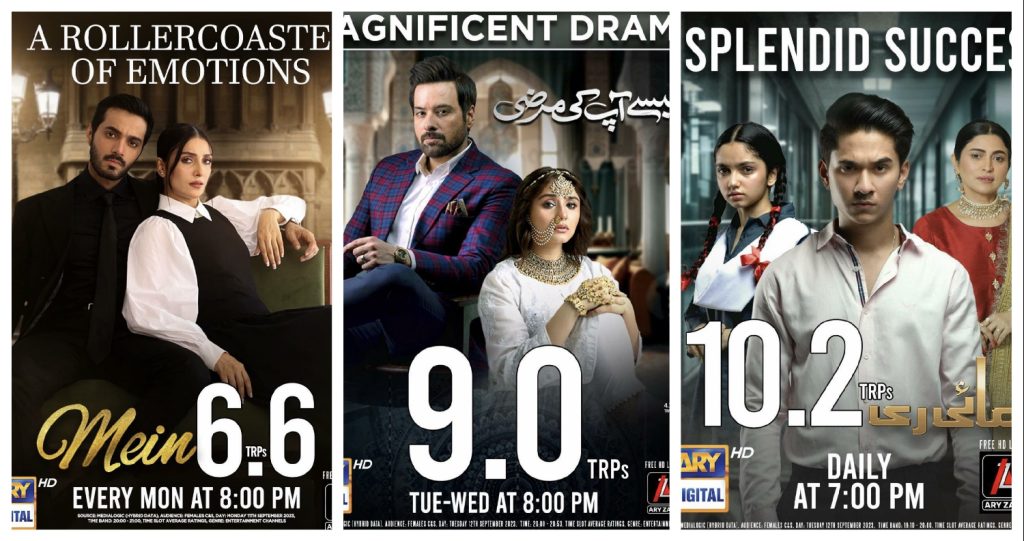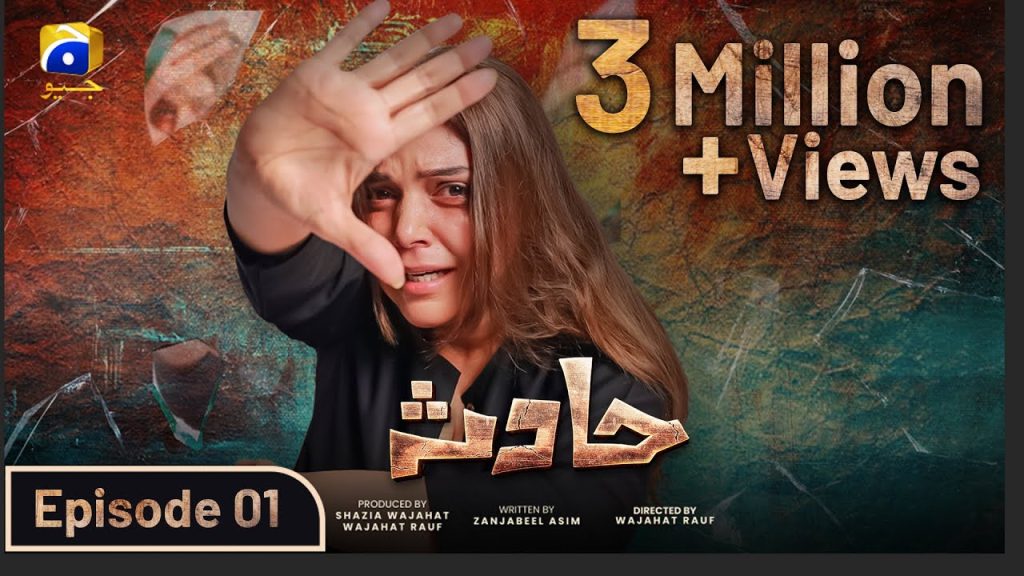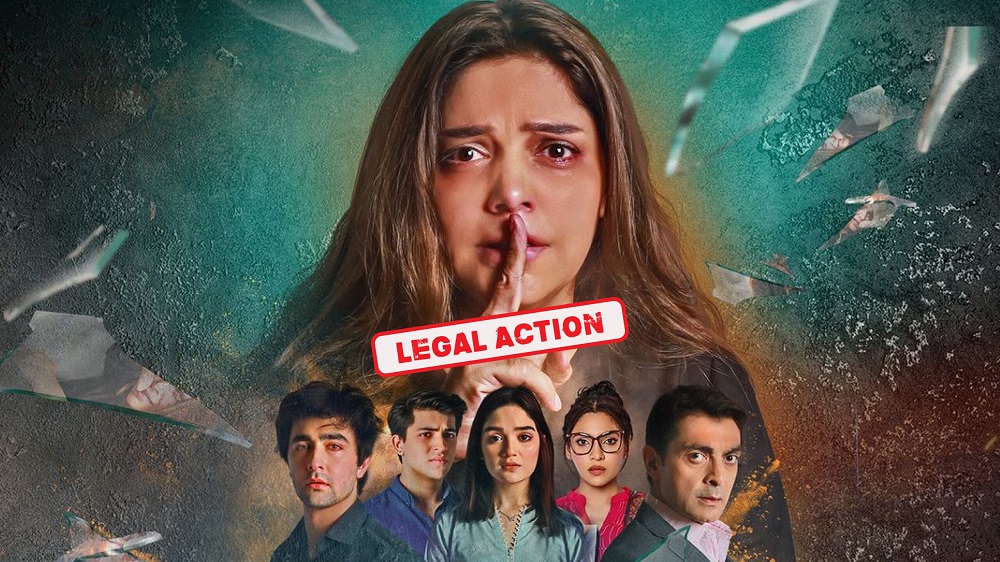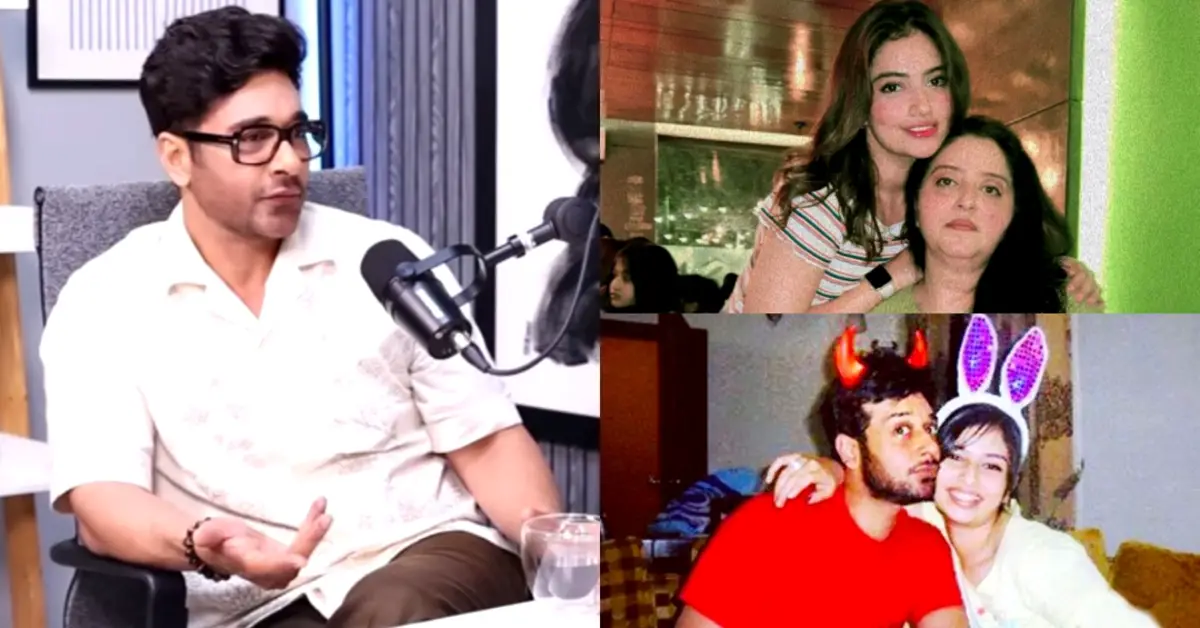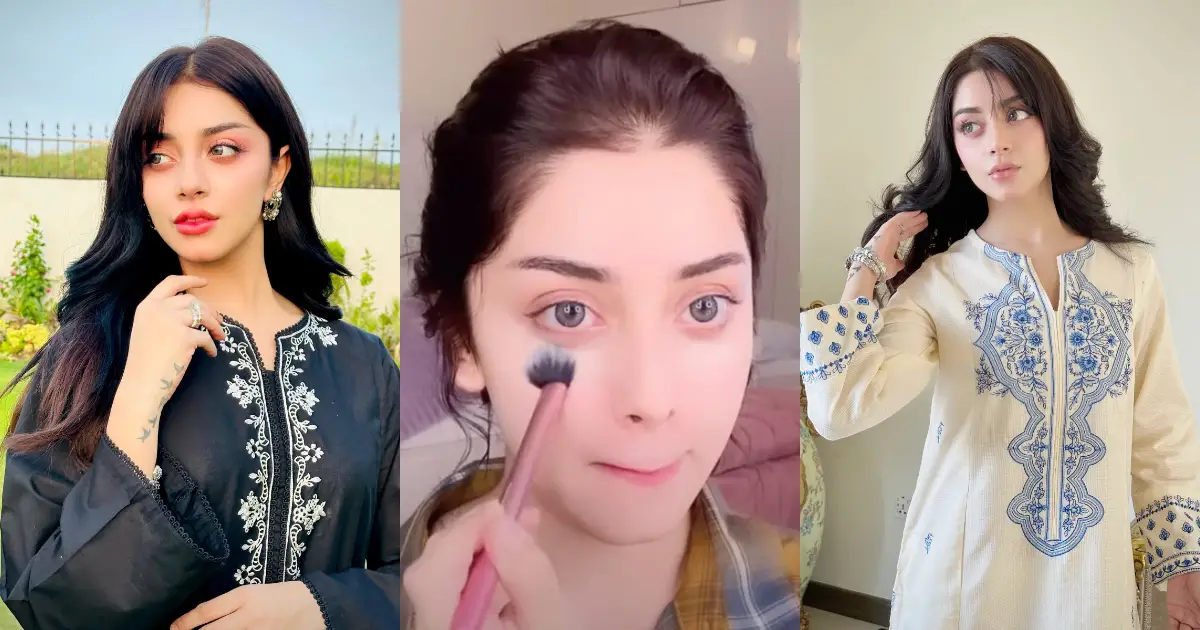In recent years, the Pakistani drama industry has experienced a series of significant developments in varying aspects. These changes have reshaped the opinion of many viewers about Pakistani television dramas. While there has been a notable shift towards experimentation and diversification in terms of content as well as platforms. Today, viewers are exposed to a wider range of topics especially with Express Entertainment and Green Entertainment taking the lead.
However, some of the mainstream channels are still finding it really hard to break free from the monotony and tried and tested formulas. The most ironic bit is that many of the dramas that either sensationalize serious issues or rest mainly on the toxicity of relationships garner more ratings than many other dramas that provide quality entertainment.
Different Approaches of Channels
For the past few months in particular, there has been a noticeable contrast between channels that are embracing innovation and those that appear to stick with conventional and often repetitive practices in the ultimate pursuit of audience attention. This difference is particularly evident when comparing Green Entertainment with channels like ARY Digital and Geo Entertainment.
Green Entertainment’s Pursuit of Novelty
Green Entertainment, without any doubt, stands out because of its willingness to experiment and offer fresh narratives. They have been proactive in diversifying content, exploring new themes, and introducing original storylines that resonate with many contemporary viewers. By doing so, Green Entertainment has managed to capture the attention of an audience seeking something different from the traditional drama formula. However, the fact is that except for Kabli Pulao all the other Green Entertainment dramas have failed to attract public attention and do not stand out in the ‘game of ratings’.
ARY Digital and Geo Entertainment’s Approach
Some of the more established Pakistani channels, such as ARY Digital and Geo Entertainment, have been reluctant to break away from the redundant formulas that have been popular for decades. They continue to produce dramas that rely heavily on familiar love triangles, family politics, love triangles, and melodrama, which have been staples of Pakistani television for a long time.
Controversial & Toxic Subjects
These television channels are well aware of the prevailing truth within the realm of viewership metrics: that controversial subjects and situations allure a certain group of viewers and translate into higher ratings. These channels know only too well that controversy sparks debates, discussions, and heightened interest. Hence, it serves as a catalyst for enhanced ratings. This is the reason why controversy remains an integral element of their broadcasting strategy.
Unfortunately, another disconcerting reality is that a substantial portion of the viewership base tends to gravitate towards content characterized by extreme levels of toxicity. We have all witnessed in the recent past that dramas that banked heavily on toxic relationships garnered more ratings and attention than those that broke free from such scenarios. This phenomenon has clearly led to the trend of producers and channels banking on such toxicity to get the attention of the viewers. While doing so, most often the delicate balance between providing what a certain group of audience seemingly desires and ensuring responsible and ethical storytelling is lost.
Recent examples are dramas such as Mayi Ri, Hadsa, and Mein. All these dramas got exemplary viewership but if you take a look at the content it raises a lot of eyebrows.
Why Does Controversy Sell?
The popularity of controversial dramas like “Mayi Ri” and “Hadsa,” as well as the success of dramas featuring toxic characters such as “Mein” and “Jaisay Aap Ki Marzi,” goes to show that controversy and toxicity sell. The enduring appeal of controversy in the world of Pakistani television cannot be overlooked.
One reason is that controversial topics pique viewers’ curiosity. Such content also gets extreme reactions from viewers. Whether it is outrage, fascination, or shock, these emotional reactions make the content go viral. It has also been seen that controversial content most often generates discussions and debates. People like to share their opinions and engage in conversations about such issues. Media outlets know only too well that such discussions can extend the life of a story and increase audience engagement.
As a result of all this hype created by controversial topics, more viewers are drawn to such dramas. So, even though some of the enlightened viewers criticize such content they still watch it out of curiosity which helps these channels get ratings.
Similarly, toxic characters and storylines that center around toxicity very often become instant hits. The most obvious reason for this seems to be that toxic characters and storylines tend to evoke strong emotional responses from the majority of the viewers. These intense feelings such as intrigue, sympathy, or even revulsion heighten emotions and interest. sometimes viewers feel repelled by the toxicity but are so keen to see the toxic characters get punished that they continue to watch such dramas. Therefore, it would be safe to say that for some it is a vicious circle of engagement. In essence, the interplay between repulsion and the desire for justice creates a compelling narrative tension that can be a driving force behind the enduring popularity of dramas featuring toxic characters.
Last but definitely not least, there is no denying the fact that there is an entire cadre of viewers who watch dramas with toxic content with an unwavering commitment. Such viewers are convinced that these exaggerated portrayals of dysfunction and conflict are mirrors reflecting human reality. They watch these dramas with dedication because they believe that these stories are true to reality. It would be safe to say that such viewers definitely are the ones who play a major role in promoting such dramas by making them popular.
Whose Fault is it?
So, if there are so many viewers out there who choose to watch such content that lacks substance and creates toxicity, who is actually responsible for creating and promoting such content? Does that mean that the producers and channels have no responsibility at all?
The fact is that utilizing controversy as a means to boost television ratings in a negligent or unethical manner is wrong. Producers and channels do bear a degree of responsibility for the content they promote and air. They must draw a fine line between providing what the audience wants and upholding ethical and social responsibilities. This includes considering the potential impact of these dramas on viewers, especially when they involve sensitive or harmful themes.
Employing sensational and attention-grabbing elements with the sole intention of sparking intense reactions and discussions among the audience is irresponsible behavior. Similarly, showing stories that exploit sensitive topics, personal tragedies, or societal issues purely for entertainment purposes, without addressing them responsibly or providing constructive insights is a crime our producers and writers are guilty of committing excessively. These drama makers totally ignore the fact that this irresponsible approach can trivialize serious subjects and harm public perceptions. A recent example is that of the drama serial Hadsa. Even the drama serial Mayi Ri seems to be going on the wrong track but the producers continue to rave about the ratings.
Will Hadsa Ban be a Game Changer?
Recently, the ban on Hadsa and how it all happened has definitely served as a reality check for the producers who use personal stories to make dramas. The way the victim came forward and has taken the initiative has sparked important conversations about the role and responsibility of content creators in navigating the fine line between artistic expression and ethical considerations. Hadsa was not the first drama based on a true event; we have seen many other dramas like this one which topped the rating charts, in the past.
Pakistani producers have often used someone’s true story as a mere attention-grabbing tool. Many of the real-life tragedies that grabbed media and public attention were turned into dramas. The producers did so without considering the profound and lasting consequences of their actions. Hadsa victim speaking up has made many viewers understand how such dramas commodify personal suffering and sensationalize and objectify real people who have already endured a great deal. In such scenarios, the producers have always prioritized profit and viewership ratings over the ethical imperative to treat individuals and their experiences with sensitivity, respect, and empathy. There is definitely reason to believe that the ban on Hadsa and the ensuing legal battle will serve as a warning for our drama makers.
Final Thoughts
Even though controversy and toxicity sell, it should not be used as a storytelling tool. The scripts which deal with sensitive topics in particular should be handled responsibly and within ethical boundaries. Exploiting such social issues irresponsibly can negatively impact society at large. Responsible content creation and ethical storytelling should prioritize the well-being and values of both the audience and society as a whole. Exploiting such social issues can perpetuate harmful stereotypes, misrepresent facts, and even sensationalize issues that deserve thoughtful consideration and empathy. The responsibility rests with producers who need to shift their focus from ratings to responsible storytelling.

